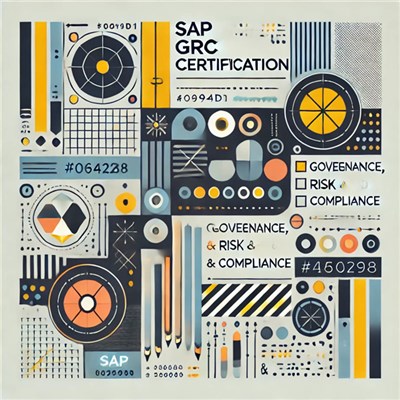
In the ever-evolving world of technology, having the right certifications can open the door to many career opportunities, especially in IT infrastructure management. One such certification that is highly valuable for IT professionals is the Web Server Certification. Whether you're an aspiring IT administrator, a DevOps engineer, or a systems architect, mastering the skills related to web server management is essential. A web server certification equips you with the fundamental skills required to deploy, manage, and secure web servers, which are crucial components for most modern businesses.
In this blog, we’ll break down the key skills you’ll gain from a web server certification course, including server installation, configuration, security, and optimization. Let’s dive deeper into these essential skills and how they will help you advance in your career.
Skills Learned in a Web Server Certification Course
1. Server Installation and Setup
One of the foundational skills you’ll learn in a web server certification course is how to install and set up web servers. Installation is the first step in configuring a server for use, and knowing how to install various types of web servers—such as Apache, NGINX, and IIS (Internet Information Services)—is crucial for any IT professional.
- Choosing the Right Server Software: A web server certification course will guide you through the process of selecting the best web server software for different use cases. You’ll learn how to evaluate factors such as system requirements, performance needs, and ease of use to determine the most appropriate solution for your organization.
- Installation Steps: You’ll also learn the detailed steps involved in installing web server software on different operating systems, such as Linux, Windows Server, or macOS. The course will teach you how to navigate command-line interfaces (CLI) and graphical user interfaces (GUI) to ensure a smooth installation process.
2. Server Configuration
After installation, the next skill you'll acquire is server configuration. Once the web server is installed, proper configuration is essential to ensure it runs efficiently and securely. You'll gain hands-on experience configuring web servers, including setting up virtual hosts, directories, ports, and protocols.
- Configuring Virtual Hosts: Virtual hosting is a technique that allows a single server to host multiple websites. You'll learn how to configure virtual hosts in both Apache and NGINX, allowing you to efficiently manage multiple sites using a single web server.
- Setting Up Directories: Server configurations often require setting up directories that are important for storing website files and data. You’ll learn how to properly configure directories, ensuring that the correct permissions and access rights are applied.
- Web Server Directives: Every web server software has its own set of configuration directives. For example, in Apache, directives such as DocumentRoot, AllowOverride, and DirectoryIndex control various aspects of how the server interacts with clients. You’ll gain the expertise to edit and fine-tune these directives according to your project’s needs.
3. Web Server Security
Security is an essential aspect of any IT infrastructure, and it becomes even more important when dealing with web servers. Web servers are constantly exposed to external threats, so a solid understanding of web server security practices is paramount.
- Securing Web Server Communication: One of the first steps in securing a web server is configuring SSL/TLS encryption. A web server certification course will teach you how to install SSL certificates to encrypt communication between the server and users, ensuring data privacy and integrity.
- Firewalls and Access Control: Learning to configure firewalls and apply security settings that limit access to the server is another key skill. You'll understand how to create rules that restrict access to authorized users only, minimizing the risk of unauthorized access.
- User Authentication: You'll learn to configure various authentication methods such as basic authentication, digest authentication, and OAuth to safeguard sensitive data on the server.
- Securing Server Files: A critical aspect of server security is securing files and directories. You’ll learn to set file permissions and ownership correctly, ensuring that sensitive files are not exposed to unauthorized users or applications.
4. Web Server Optimization
Once a web server is up and running, optimizing its performance is essential to ensure a smooth and fast user experience. Web server optimization focuses on reducing response times and improving the overall speed of your web applications.
- Caching Strategies: Caching is a common method for improving server performance. A web server certification course will teach you how to configure caching at various levels, such as server-side caching, browser caching, and CDN (Content Delivery Network) caching. This helps to reduce load times by storing frequently accessed resources.
- Load Balancing: You'll also learn how to configure load balancing across multiple servers. Load balancing distributes traffic across several servers, ensuring that no single server is overwhelmed, which improves uptime and scalability. Techniques such as round-robin or weighted load balancing are common approaches you'll learn to apply.
- Monitoring and Performance Tuning: A good web server certification course will cover server monitoring tools and techniques. You’ll learn to use tools like htop, top, or Nagios to monitor server performance in real time. You’ll also gain insights into optimizing server configurations for maximum performance and troubleshooting bottlenecks.
5. Troubleshooting and Maintenance
A key skill learned in a web server certification course is troubleshooting and maintaining web servers. Server maintenance ensures that your web server continues to run smoothly, while troubleshooting helps identify and resolve problems when they occur.
- Error Logs and Debugging: In a course, you'll gain knowledge of how to access and interpret error logs, which can provide valuable insights when things go wrong. Apache and NGINX have their own specific log files, and you’ll learn how to read through them to troubleshoot issues.
- Server Health Checks: Regular server health checks, such as monitoring resource usage and identifying outdated software, are vital for maintaining a reliable system. You will be trained to schedule regular maintenance routines that ensure your server remains up to date and secure.
6. Compliance and Best Practices
Finally, web server certification courses often cover essential compliance standards and best practices in server management. Whether it’s adhering to GDPR, HIPAA, or other regulatory requirements, understanding the compliance landscape is crucial for IT professionals.
- Industry Standards: A certification course will expose you to various industry standards related to web server management, ensuring that your web server configurations are in line with best practices.
- Backup and Disaster Recovery: You’ll learn how to implement disaster recovery strategies, including regular server backups and data redundancy solutions to ensure business continuity.
Conclusion
A web server certification course provides IT professionals with a comprehensive skill set that is indispensable for managing modern web infrastructure. From server installation to security, optimization, and troubleshooting, these skills will empower you to become an expert in web server management. The expertise gained from this certification can lead to better career prospects in various fields such as web development, system administration, DevOps, and IT security.
If you’re looking to enhance your career in IT infrastructure management, a web server certification is an essential step toward mastering the skills needed to work with web servers efficiently and securely. By gaining proficiency in these critical areas, you’ll be well-equipped to tackle the challenges of modern web environments and contribute significantly to your organization’s success.
If you are considering getting a web server cert, Koenig Solutions, a leading IT training company, offers comprehensive training and certification courses in web server management. With experienced instructors and a hands-on learning approach, Koenig Solutions ensures you gain the practical skills required to manage web servers proficiently.
To conclude, a web server certification is a valuable addition to your resume. It not only validates your skills but also opens up new career opportunities. Start your journey towards becoming a certified web server professional with Koenig Solutions today!







COMMENT